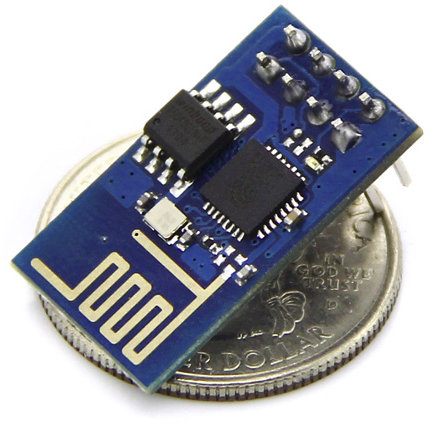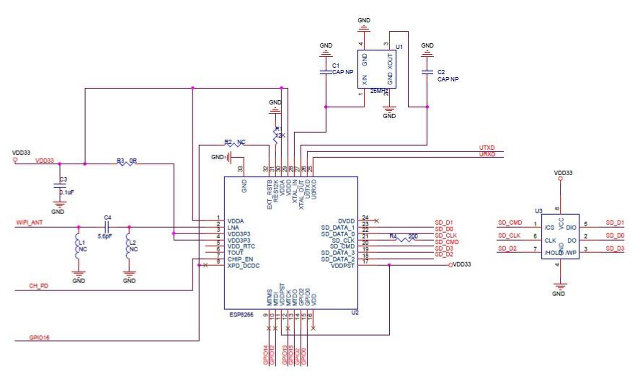Wi-Fi is great because it’s ubiquitous, and rather fast for a wireless standard. However, it drains batteries fast, and Wi-Fi modules are usually much more expensive than Bluetooth modules for instance. There’s not much that can be done with regards to power consumption, but thanks to ESP8266 module, it’s now feasible to add Wi-Fi to your Arduino board, or others, for just $5 including shipping on Aliexpress, but SeeedStudio also have it for $6.95. If you buy 1,000 pieces, it goes down to about $3 per unit.

As reported by Hackaday, this module embeds ESP8266 SoC which takes care off all IP stacks, a bit like Texas Instruments CC3000 SoC, but it’s just much cheaper.
Here are some of the specifications of the module (and processor):
- SoC – Espressif Systems ESP8266 32-bit RISC processor with 802.11 b/g/n support(32-pin QFN package), Interfaces: SDIO 2.0, SPI, UART, I2S
- Wi-Fi – 802.112 b/g/n with WEP, TKIP, AES, and WAPI engines, Wi-Fi direct (P2P), and soft-AP
- Header – 8-pin header with GND, VCC (3.3V), Rx and RX, and 4 NC pins.
- Standby power consumption – < 1.0mW (DTIM3)
- Dimensions – 21 x 11 mm
- Weight – 3 grams
SeeedStudio has provided documentation for the module including the AT Instruction Set and ESP8266 Specifications both in Chinese only, but there’s also a translation of the datasheet in English. There;s also a “IoT SDK” available for the board that includes tools, scripts, binary libraries, and an IoT demo programmed in C language.

There are very few references to ESP8266 on the net for now, so even if it’s feasible to use it with Arduino boards for example, somebody (YOU!) still have to write the AT command set to control the module, and it won’t be as easy as using an already supported Wi-Fi shield, until a library makes it to the Arduino IDE. One developer plans to interface it with TI MSP430 MCU.
Thanks to Freire!

Jean-Luc started CNX Software in 2010 as a part-time endeavor, before quitting his job as a software engineering manager, and starting to write daily news, and reviews full time later in 2011.
Support CNX Software! Donate via cryptocurrencies, become a Patron on Patreon, or purchase goods on Amazon or Aliexpress




